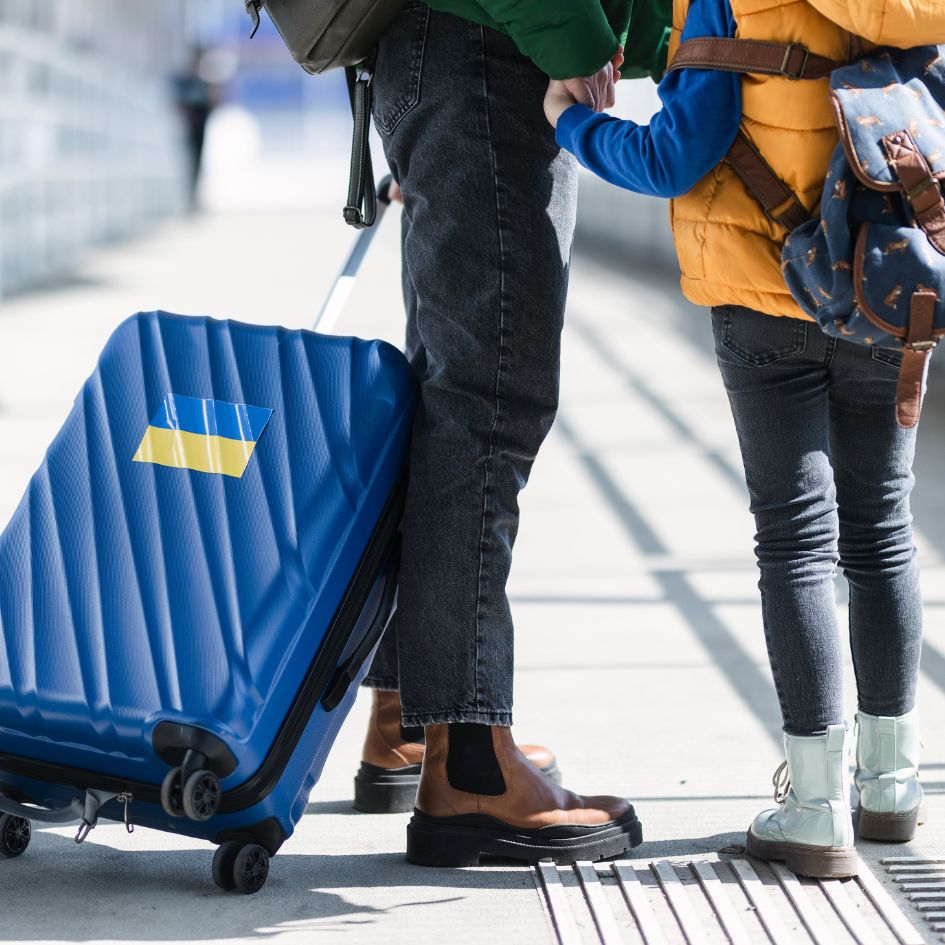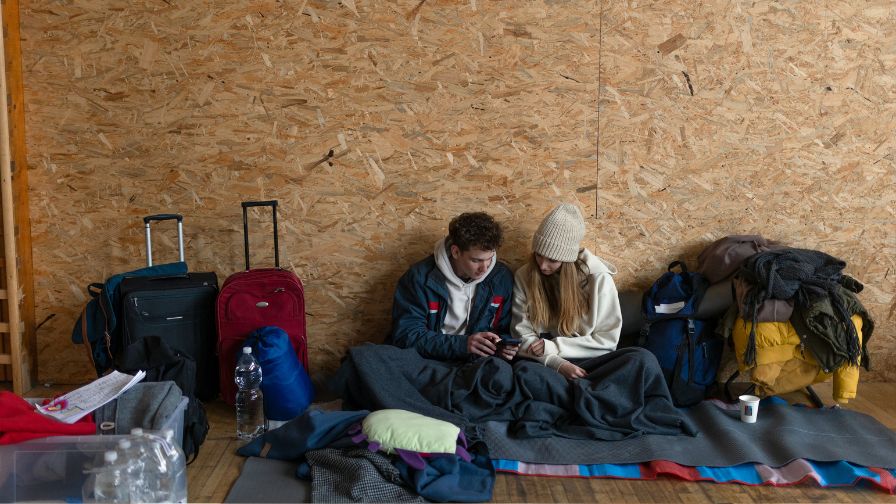With the outbreak of war in Ukraine, a variety of stories began to spread on the Internet about children crossing the border on their own. This was only a minor preview of a huge problem – related to cross-border travel by underage children unaccompanied by a parent.
Source of the problem
The question of legal custody remains clear if the child is moving:

- with a parent (however, it is advisable to bring the notarised written consent of the other parent with you, if possible);
- another person who also has notarised permission to bring the child along, together with documents confirming blood ties (e.g. grandmother, aunt)
As in Poland, according to the Ukrainian Civil Code, an adult is one who has reached the age of eighteen. However, the age of sixteen gives a Ukrainian citizen more rights than a Polish peer (e.g. the right to travel abroad independently). For our legal system, it is mandatory to turn eighteen for such opportunities. This is the reason for so many travel complications for under-aged. Fortunately, the danger of such situations had a chance to diminish after 12 March, when a resolution of the Cabinet of Ministers of Ukraine was declared. The new law meant that people under the age of 16 could no longer cross the border without a guardian – and the adult travelling with them automatically became entitled to apply for temporary custody. However, from 24 February until the date the resolution came into force, cross-border movement took place under the old rules, resulting in freedom of movement for juveniles.
Institution of a temporary custodian
The institution of a temporary guardian was the answer to this emergency situation. The guardian has a number of rights in relation to the care of the child:

- is entitled to represent and have custody of person and property.
- have the right to free legal aid and free civic advice
- due to this obligation, is provided psychological assistance in connection with custodial activities
- makes applications for social assistance on behalf of the child
However, it is important to remember that the guardian does not exercise authority over the child like a parent. Additional supervision of the activities of the temporary guardian is exercised by the social welfare centre or the social services centre. On the other hand, in more important matters concerning the child (e.g. going to Ukraine), the guardian must obtain the consent of the Polish family court. Temporary custody ceases by operation of law if a parent comes forward to take the child back under his or her wing.
Establishment of temporary custody
The competent court for filing an application for the establishment of a temporary guardianship is the family court of the child’s place of residence. Such a procedure can also be initiated ex officio – so it is advisable to inform the court when you have information about an unaccompanied underage. The procedure is free of charge. The case shall be heard no later than within 3 days from the date on which the court receives the application or becomes aware of the need to appoint a temporary guardian. If a guardianship is established, the relevant authorities – above all the Border Guard – are informed.
Children do not want to become dependent
Refugee arrivals at a younger age do not want to put themselves in a situation of dependency on a guardian:
Some adolescents between the ages of 16 and 18 have crossed the border without a factual guardian, feeling adult and independent. In Poland, they struggle with being reduced again to a position of dependence on a possible guardian. […] We are getting information that there are even groups of such teenage kids who try to avoid this procedure. This is because according to Ukrainian legislation and tradition, 16-year-old children already feel like adults, so coming down here this ‘level lower’ and getting a temporary guardian arouses rebellion in them, there is opposition on their part. There are kids who are already taken care of somehow, they try somewhere to avoid this form and as long as there are no problems, they manage to function this way – they do school online from Ukraine, they don’t have any health problems”.
A report by the Helsinki Foundation for Human Rights Unaccompanied.

It is not possible to adopt a child from Ukraine
In the early days of the war, when the refugee traffic at the border was at its heaviest, there were hints of charity also in the form of a desire to adopt a child from Ukraine. There were posts on Facebook groups expressing sympathy and willingness to help in this way. However, such a way of adopting a child is illegal for several reasons:
“In the situation of the international armed conflict in Ukraine, the departure of children from the country was a necessary step to ensure their safety and proper care […]. According to international and domestic law, Ukraine takes all measures to ensure that no child outside Ukraine is illegally adopted or adopted by foreigners without Ukraine’s consent. Currently, Ukraine is not considering changing or simplifying the adoption procedure and does not grant permission for the adoption of children by foreigners. With regard to any international adoptions of refugee children or children displaced abroad as a result of, for example, an armed conflict, special caution should be exercised with a view to, inter alia to avoid a situation in which a child is wrongfully placed with potential adoptive parents and the process of bonding and integration begins, but then has to be interrupted due to the appearance of legal obstacles or irregularities (for a child to be adopted, he or she must be an orphan or his or her parents must be deprived of parental authority, and we do not know what the situation of Ukrainian children coming to Poland is). Such a situation may pose a serious threat to the welfare of the child, the family of origin and the future adoptive parents. In light of the above, in a situation of armed conflict, the conflict should not be used as a justification for speeding up international adoptions or for circumventing or disregarding international standards and important safeguards for safe adoption. Adoption procedures should be prohibited. As UNICEF notes “[adoption] should not take place during or immediately after emergencies”.
Communication from the Ministry of Family and Social Policy of 14 April 2022 on the adoption of children from Ukraine residing on the territory of Poland as a result of the armed conflict in their country
This issue has been raised by legal organizations working on behalf of refugees from Ukraine, including the Association for Legal Intervention. The ‘Give Children Strength’ Foundation is also calling for action.
Additional information
In November 2022, a special form was launched through which parents will be able to decide on their child’s travel from Ukraine and the exercise of parental authority.
Below is a list of additional, helpful sources to expand your information.
